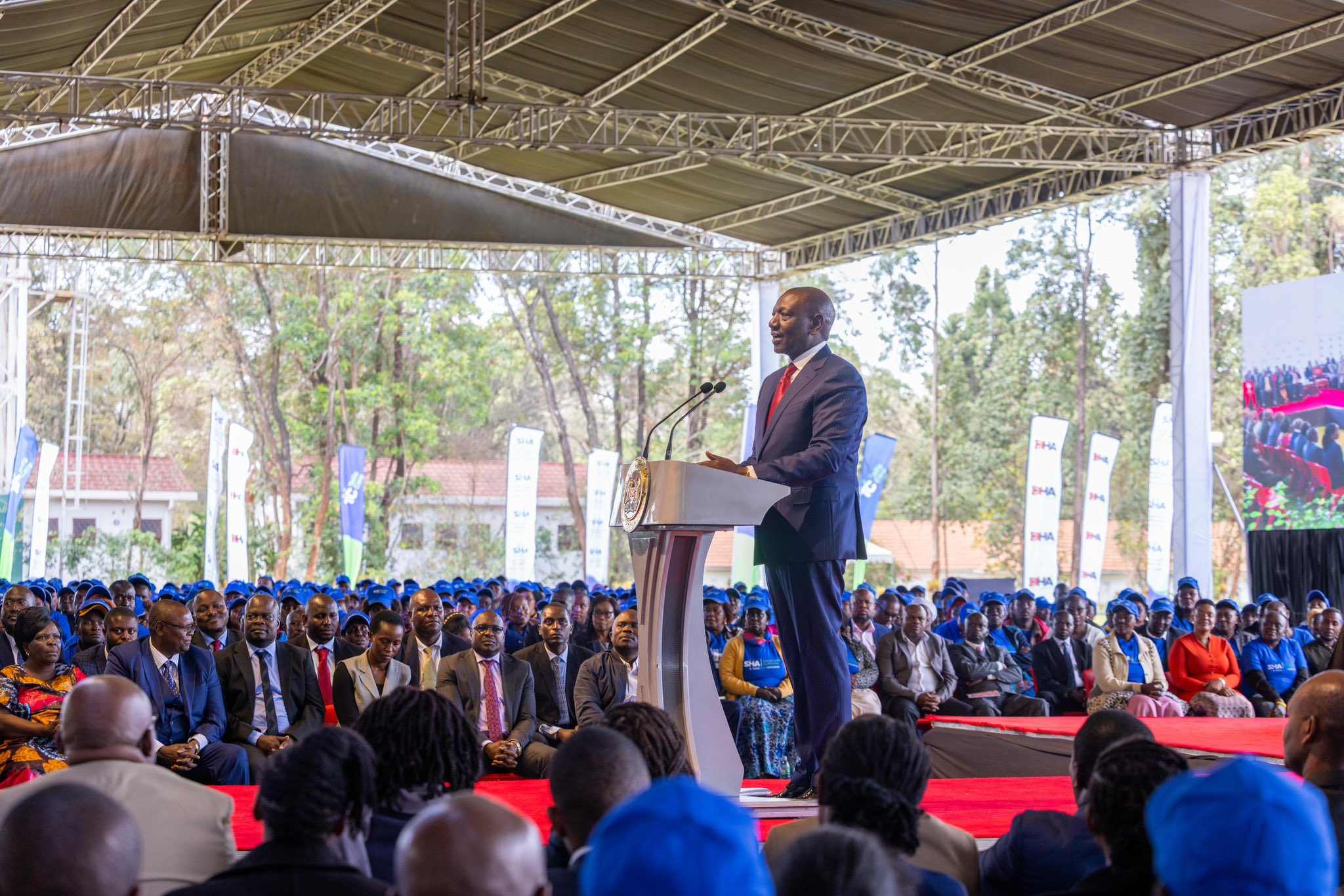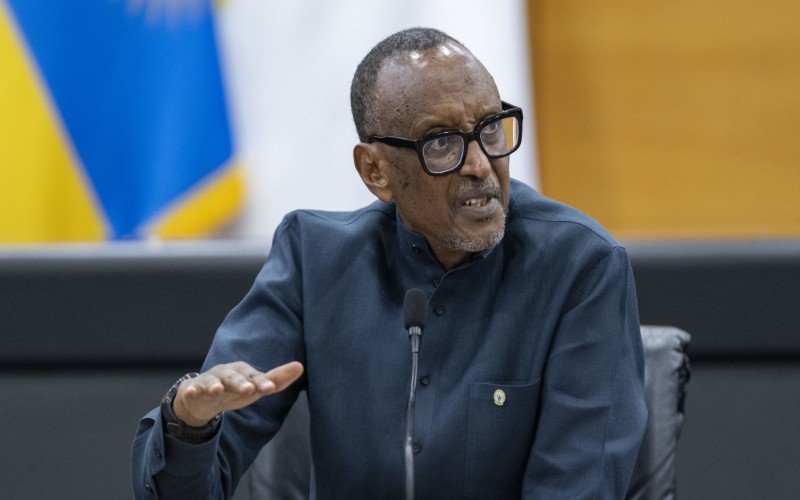RUPHA raises alarm over Ruto's SHA cover rollout for vulnerable Kenyans, citing legal violations

The association says the National Treasury and county governments have yet to allocate the funds required under the Social Health Insurance Act 2023.
The Rural Private Hospitals Association of Kenya (RUPHA) has raised concerns over President William Ruto’s rollout of the Social Health Authority (SHA) indigent cover for poor and vulnerable households, warning that the scheme was launched without following legal provisions on funding and beneficiary identification.
The association says the National Treasury and county governments have yet to allocate the funds required under the Social Health Insurance Act 2023.
More To Read
- TSC sued over teachers’ migration from MINET insurance to SHA
- 1,567 injured police officers compensated, says Mwangangi as Senate pushes for transparency
- SHA announces refund process for mistaken M-Pesa premium payments
- Senators order agencies to reconcile records on injured police officers’ claims amid conflicting figures
- Ruto announces increase in cancer treatment cover to Sh800,000 under SHA from December 1, 2025
- Government to review SHA packages amid calls for better cancer care
Over the weekend, President Ruto announced that the government had committed Sh4.4 billion to SHA to cover 2.2 million indigents, representing approximately 558,000 households. The President also praised leaders and philanthropists who have stepped in to sponsor households, revealing that MPs had covered the SHA costs for 508,000 people.
“There are many people of goodwill. We have a friend from Kenya who has contributed and promised to pay for 113,000 Kenyans. MPs have also stepped up, and I urge MPs to use Constituency Development Funds (CDF) to support those unable to pay from their constituencies,” Ruto said.
“These leaders have taken on the responsibility of paying for other Kenyans. We shall carry this burden together and will not relent until every citizen unable to pay has been covered, making healthcare truly universal.”
RUPHA chairperson Brian Lishenga welcomed the initiative but stressed that the launch ignored the legal requirements under the SHA Act and its regulations, which mandate that funds for indigents and vulnerable groups be appropriated by the National Assembly and county governments.
“Kenya is estimated to have at least five million indigents. The cover launched today targets 2.2 million households, which is still far below what is envisaged,” Lishenga said.
He noted that the law requires means testing to identify indigent and vulnerable groups, including orphans, widows, widowers, persons with disabilities and the elderly, before enrolment, a process that has not yet begun.
“The National Treasury has not yet carried this out, and there is no evidence that the National Assembly has appropriated funds for what was launched today. Most counties have neither identified indigents nor allocated funds to be remitted to SHA,” he added.
SHA, during the launch, opened a webpage for “sponsorship” of vulnerable households. The portal indicated President Ruto’s contribution of Sh4.4 million, while an anonymous donor made the largest single donation of Sh900 million. Refugee Point, Mombasa Cement and UNHCR are supporting 150, 2,500 and 22,155 beneficiaries, respectively.
At the county level, Cheptiret Kipchamo Ward in Uasin Gishu supports 291 people, while Baringo, Mombasa and Lamu counties each have 20,000 beneficiaries enrolled.
Several politicians also made contributions, including Japheth Miriti (Maraa MP), Sh5.5 million; Naisula Lesuuda (Samburu West MP), Sh1.9 million; Janet Jepkemboi (Turbo MP), Sh2.4 million; Phelix Odiwuor (Lang’ata MP), Sh2.3 million; and David Gikaria (Nakuru Town East MP), Sh3.6 million.
Other notable contributions include Sh2.8 million from Mwangi Kiunjuri (Laikipia East MP), Sh23 million from Trans Nzoia Governor George Natembeya, Sh1.9 million from Bahati MP Irene Njoki, Sh5.6 million from Migori Governor Ochilo Ayacko, Sh117 million from Murang’a Governor Irungu Kang’ata, Sh3.4 million from Kikuyu MP Kimani Ichung’wah and Sh3.6 million from Mombasa Governor Abdulswamad Shariff.
Lishenga emphasised that the only way to guarantee sustainable medical cover for vulnerable and indigent persons is through appropriation of funds by the National Assembly and county governments, as required by the law.
“SHA regulations mandate that the National Treasury deducts and remits funds, while county finance chiefs do the same. This is the only way to ensure continuous medical cover year after year. While we welcome the initiative, Parliament has not fulfilled its role. We expect the National Assembly to allocate funds as stipulated, while SHA and counties should identify needy households across Kenya,” he said.
Other Topics To Read
President Ruto, however, defended the legality of the launch, saying the Ministry of Health, in collaboration with the Ministry of Labour, has created a list of households for support.
“We are fully within the law. This list is available to our leaders, philanthropists, donors and development partners who want to support deserving families,” he said.
He also highlighted that SHA has accredited at least 9,000 hospitals, enabling Kenyans under the scheme to access care at public or private facilities without paying.
Lishenga, however, criticised the launch as an “act of goodwill” relying on sponsorship rather than lawful budgetary allocations.
Top Stories Today












































